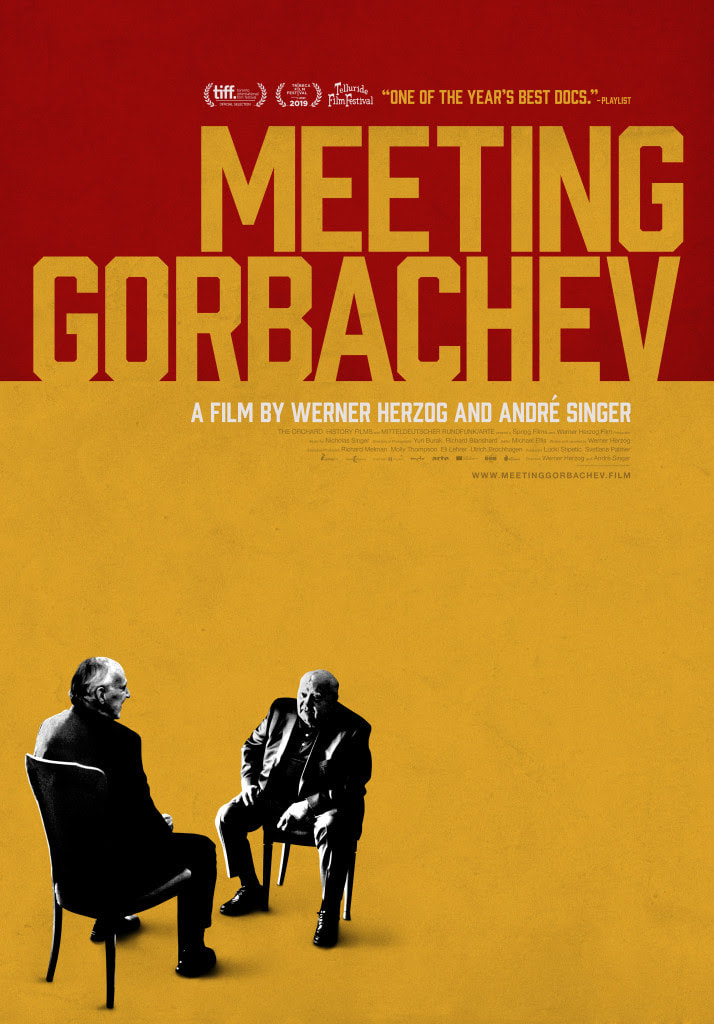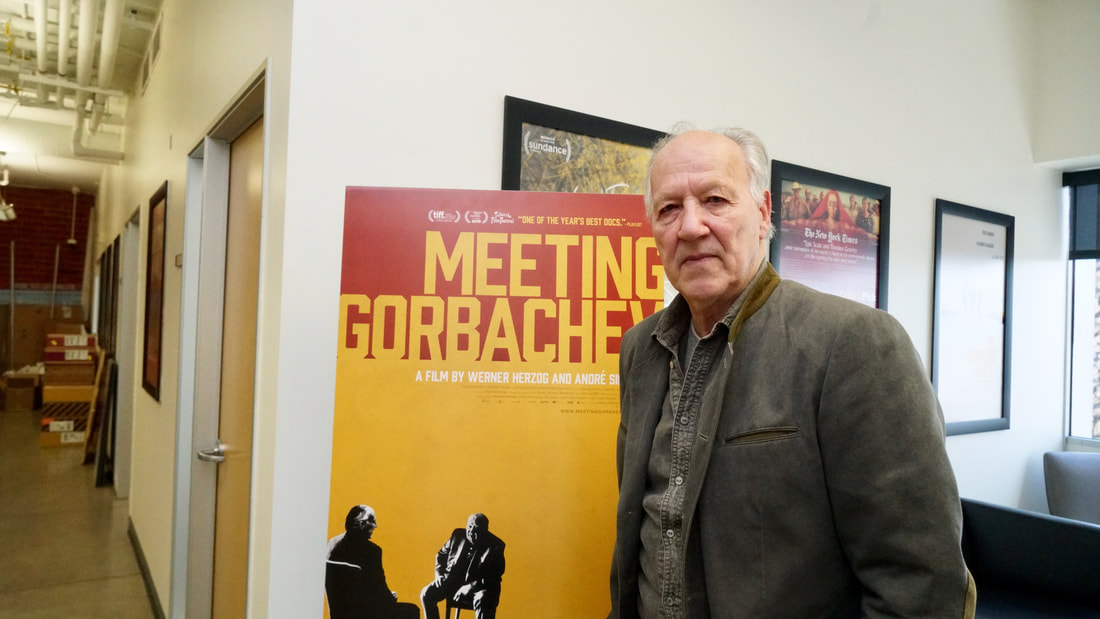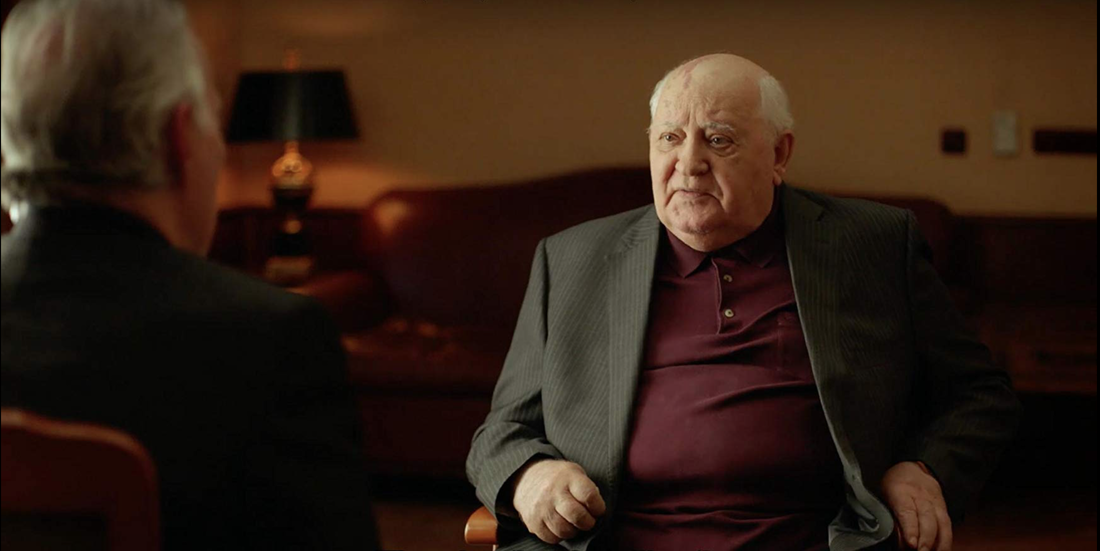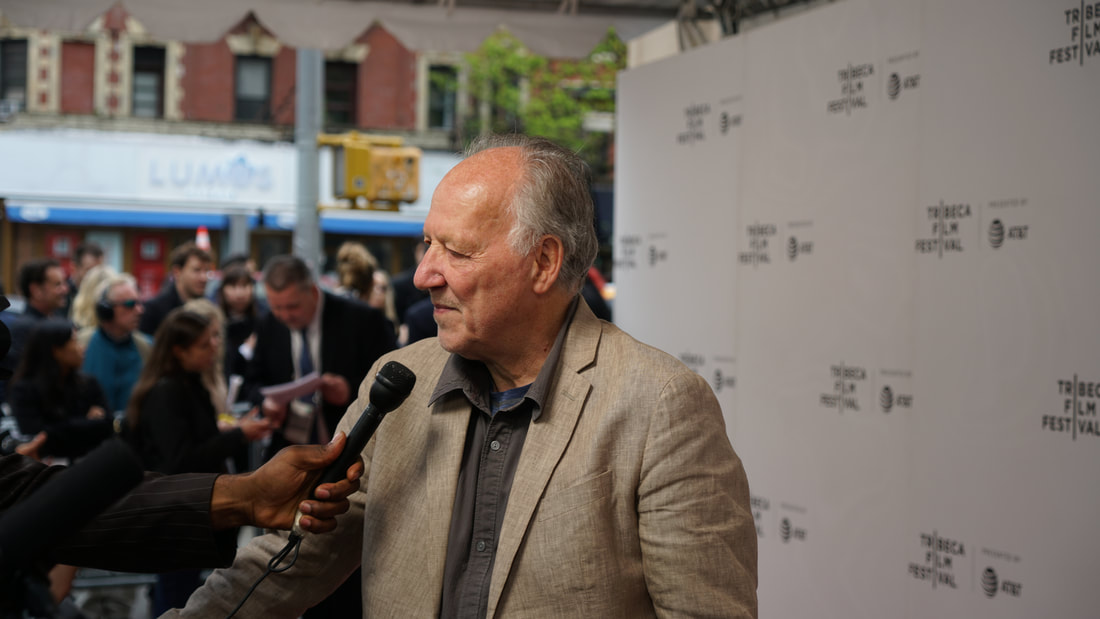|
Film co-directed by André Singer is based on three in-depth interviews between Herzog and ailing Mikhail Gorbachev As a German born during World War II who grew up in a divided nation, there are good reasons why director Werner Herzog admires the last man to preside over the Soviet Union. Without Mikhail Gorbachev's leadership, Germany might not have been allowed to reunite as it did. "Peacefully. Peacefully. That's the key," Herzog points out emphatically, during a conversation in Los Angeles days before the theatrical release of his documentary Meeting Gorbachev. "Because normally that would end up in huge bloodshed and tanks rolling out and suppression of popular uprisings. It has happened before and we have a long history of that." I am asking for 400 years for his legacy to live on. Meeting Gorbachev, co-directed by André Singer, is based on a trio of interviews Herzog conducted with Gorbachev. Gorbachev, now 88 and in precarious health, somehow mustered the strength to discuss world events and to offer counsel to a new generation of political leaders. "When you look at him you can see he's doing good battle. Each time he was brought in by an ambulance to my cameras and brought back by ambulance to the hospital. And you can't tell at all," Herzog notes. "In one of the conversations, which is intercut with others, you see him with a bandage at his hand. That was actually [for] the intravenous drip connected to that and they covered that with a bandage." Herzog's sonorous German-accented voice guides viewers through Gorbachev's backstory, detailing his origins as a Communist Party official who actually seemed interested in listening to the people and pursuing reforms. He rose through the ranks and eventually to the top of the Politburo after three previous leaders, Leonid Brezhnev, Yuri Andropov and Konstantin Chernenko, succumbed to old age in rapid succession. But by the time Gorbachev took power, the Soviet economy was in tatters. The patient could not be saved. "The Soviet Union was in full decline," Herzog notes in his narration. Gorbachev's unenviable role became managing the dissolution of the USSR. "He created the preconditions of it by restructuring the Soviet empire and by opening politics up to scrutiny, transparency. That was unheard of in the Soviet Union," Herzog marvels. "He ended the Afghan War -- and I'm speaking now of Russia's occupation of Afghanistan over 10 years -- he stopped that. He brought the troops back and many, many other achievements within the span of only six years of holding the reins of the Soviet Union." Within that six-year span Gorbachev struck a major arms control agreement with his American counterpart, President Ronald Reagan, which Herzog regards as Gorbachev's greatest achievement. "In Reykjavik [Iceland], Gorbachev and Reagan looked beyond the horizons and they made things possible that were almost unthinkable -- arms reduction in a magnitude that is unknown in world history," Herzog observes. "And now today we have a narrative which is owned by the Western media which is to demonize Russia, which I think is a mistake. You should rather talk -- even if you consider Russia an enemy, talk to them." At this point of our chat, Herzog paused to give an unexpected shoutout to the current American president, Donald Trump. "He has the courage to speak to the enemy, North Korea, the most unlikely of all combinations -- Kim Jong-un and Donald Trump," he remarks. "And although we don't have a treaty yet I hope it will come to something in real disarmament. But at the moment I can see and sense that the dangerous situation is already somewhat defused... Speak to the most unlikely. Speak to those who are your enemies out in the world." Related: Werner Herzog brings Meeting Gorbachev to the Tribeca Film FestivalThe New York Times gave Meeting Gorbachev, which is now playing in New York and LA, its stamp of approval with a Critics Pick designation. But other critics have faulted the filmmakers for not probing Gorbachev on his thoughts about Vladimir Putin, the quasi-Czarist leader of Russia. "But that's ephemeral, you see," Herzog responds. "And Gorbachev did not want to speak about what is going on [in Russia] right now. I respected that. And by the way, I think both sides [Gorbachev and Putin] have differences of opinion but they both seem to respect each other." Gorbachev is said to be more popular in the West than in Russia, where some of his countrymen resent him for allowing the USSR to fall from its perch as a superpower. But Herzog says pro-Gorby sentiment may be on the rise in the ex-leader's homeland. "It seems to be warming up because the film was shown last week at the end of the Moscow Film Festival -- completely overrun screening attended by the co-director of the film, André Singer," he comments. "And André tells me it was a very big, warm applause for Gorbachev, who unfortunately could not attend. I do believe the climate is changing." In the film, Gorbachev criticizes those in the U.S. who gloat over "winning" the Cold War. "It was our joint victory. We all won," Gorbachev insists. And he sends a direct message to political leaders of today who don't seek common ground on the global stage. "There are those who don't understand the importance of cooperation," Gorbachev comments. "There should be no place for such people in politics." Herzog believes Gorbachev's unusual capacity to think in these terms has secured him an honored place in history. Herzog repeats a comment he makes in the film: "I am asking for 400 years for his legacy to live on." Read: |
AuthorMatthew Carey is a documentary filmmaker and journalist. His work has appeared on Deadline.com, CNN, CNN.com, TheWrap.com, NBCNews.com and in Documentary magazine. |
- Home
- News
- Videos
-
Galleries
- 2019 Tribeca Film Festival
- Full Frame Documentary Film Festival
- 2019 SXSW Film Festival
- SXSW 2018 Gallery
- 2019 Sundance Film Festival
- Outfest 2018 Photo Gallery
- Outfest 2017
- Sundance 2018 Photos
- 2017 LA Film Festival
- 2017 Cannes Film Festival
- Tribeca Film Festival 2017
- SXSW 2017 Gallery
- 2017 Berlin Film Festival
- Sundance 2017 Gallery
- 2016 Los Angeles Film Festival
- Cannes Film Festival 2016
- SXSW 2016 Gallery
- Berlinale 2016 Gallery
- Sundance 2016 Gallery
- Filmmaker Gallery
- About
- Contact
Proudly powered by Weebly
- Home
- News
- Videos
-
Galleries
- 2019 Tribeca Film Festival
- Full Frame Documentary Film Festival
- 2019 SXSW Film Festival
- SXSW 2018 Gallery
- 2019 Sundance Film Festival
- Outfest 2018 Photo Gallery
- Outfest 2017
- Sundance 2018 Photos
- 2017 LA Film Festival
- 2017 Cannes Film Festival
- Tribeca Film Festival 2017
- SXSW 2017 Gallery
- 2017 Berlin Film Festival
- Sundance 2017 Gallery
- 2016 Los Angeles Film Festival
- Cannes Film Festival 2016
- SXSW 2016 Gallery
- Berlinale 2016 Gallery
- Sundance 2016 Gallery
- Filmmaker Gallery
- About
- Contact





 RSS Feed
RSS Feed